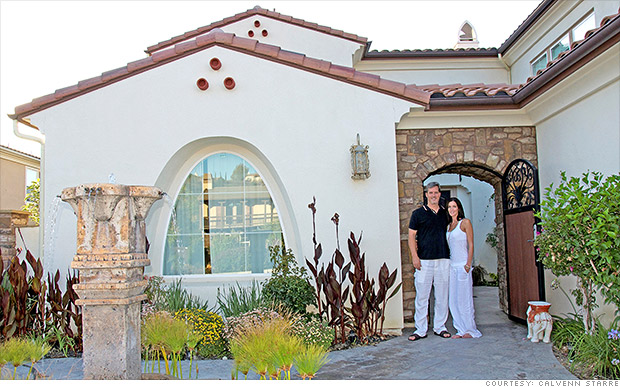
NEW YORK (CNNMoney)
The Starres aren't movie stars, but they live like it -- for a fraction of the cost.
As home managers, Calvenn and Crystena Starre rent a $1.3 million home in Carlsbad, Calif., for just $2,500 a month -- about a third of what it would cost normally.Currently, there are 200 home managers, who reside in the home until it's sold (it usually takes about three to six months). They watch for any maintenance issues and make the home look desirable (food in the fridge, clothes in the closet) for prospective buyers.
But not everyone can get the gig -- Showhomes' acceptance rate is about 40%. Residents must undergo online background checks, including criminal and rental histories. They're typically white-collar professionals who are in a city temporarily, newly divorced or, in the Starre's case, a family of five looking for a quick and easy rental.
With Showhomes, the Starres didn't need to make a long-term commitment -- they could leave their furniture in storage until they figured out where they wanted to live long term.
But what was a temporary move became a way of life. Over the past two years, they've lived in five different Showhomes -- ranging from $900,000 to $1.3 million in value -- all in the San Diego area. The amenities have included everything from tennis courts to pools.
"It's a way to live in a really inexpensive way," said Matt Kelton, chief operating officer of Showhomes, which has 58 franchises in 18 states.
But it's not all a walk in the park. Showhomes has a number of restrictions for home managers.
"You can't be a smoker, you can't have a bunch of pets, no religious items -- things that can deter [a buyer] one way or another," added Kelton.
Personal items like family photos, sports teams and political paraphernalia are also prohibited. And then there's the prospective buyers who could be surveying their home at a moment's notice.
"We give up certain parts of our lives [for] the reduced rent," said Calvenn.
